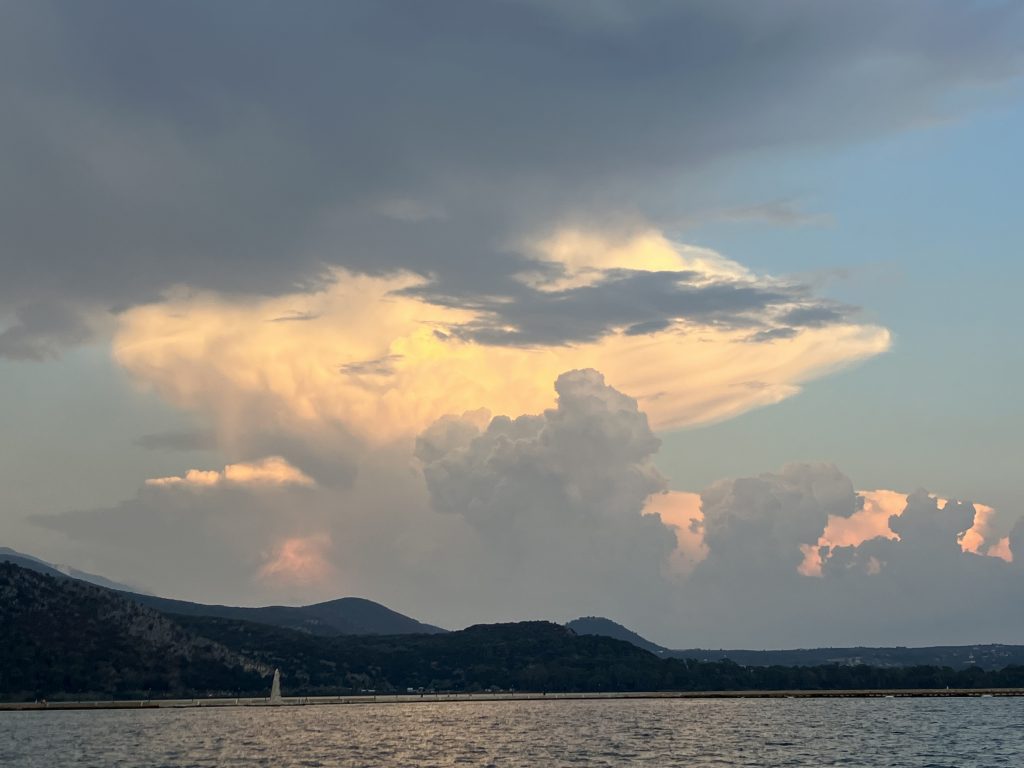
It was time to leave Greece, but apparently Greece didn’t want to say goodbye. We were grateful that Greece has a bilateral visa agreement with the US that allowed us an extra 90 days beyond our Schengen 90 days. Apparently we had to pay for that good luck with the bad luck of trying to leave the country. Clearing out became a comedy of errors which took us a few days. Between the post office (trying to pay for an additional month of the tepai (cruising tax)), the port police (who said yes no matter how many different ways Trip asked a question), the immigration office (we visited three days in a row before we finally got our passports stamped), it could have been a new Monty Python movie. It’s really a good thing we were not in a hurry.
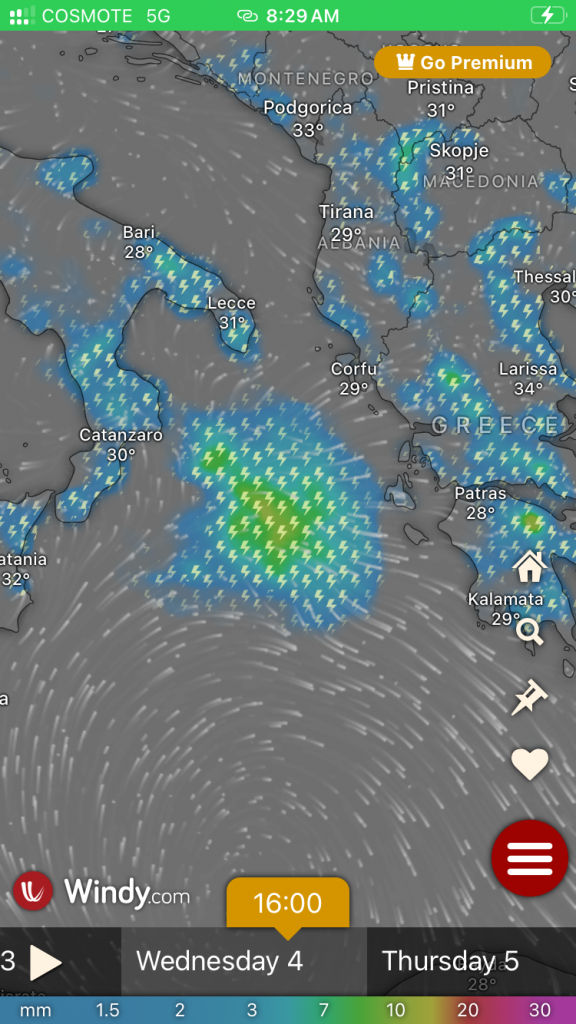
Of course in the meantime the forecast seemed to change every 12 hours and what looked like a good window (we needed 3 1/2 days) would suddenly not be a good window. I became wary of the CAPE index which indicates stability of the air, which is notoriously poor at this time of the season leading to numerous thunderstorms. We opted to activate our expensive Iridium GO satellite connection along with the offshore version of PredictWind, knowing that we could use it for this passage as well as the one to Tunisia before we cancelled the service again.
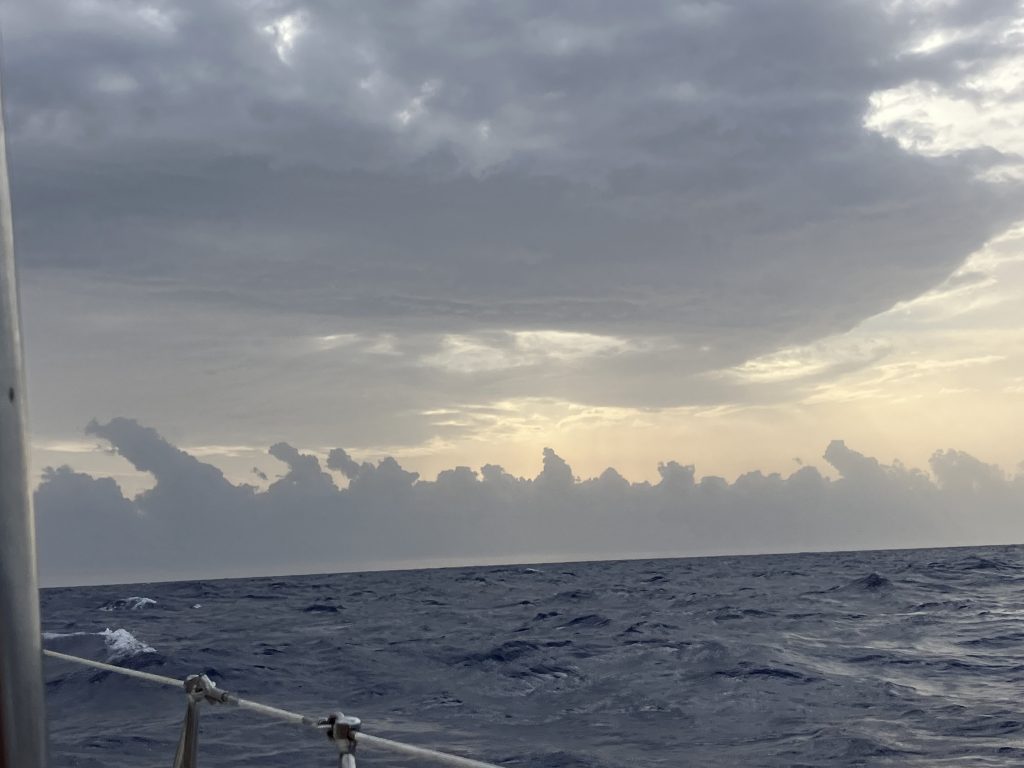
It was a good passage overall. We didn’t remotely manage to stay in a straight line, because the winds were constantly ahead of the beam, and we did a lot of hand steering to point as far into the wind as possible.
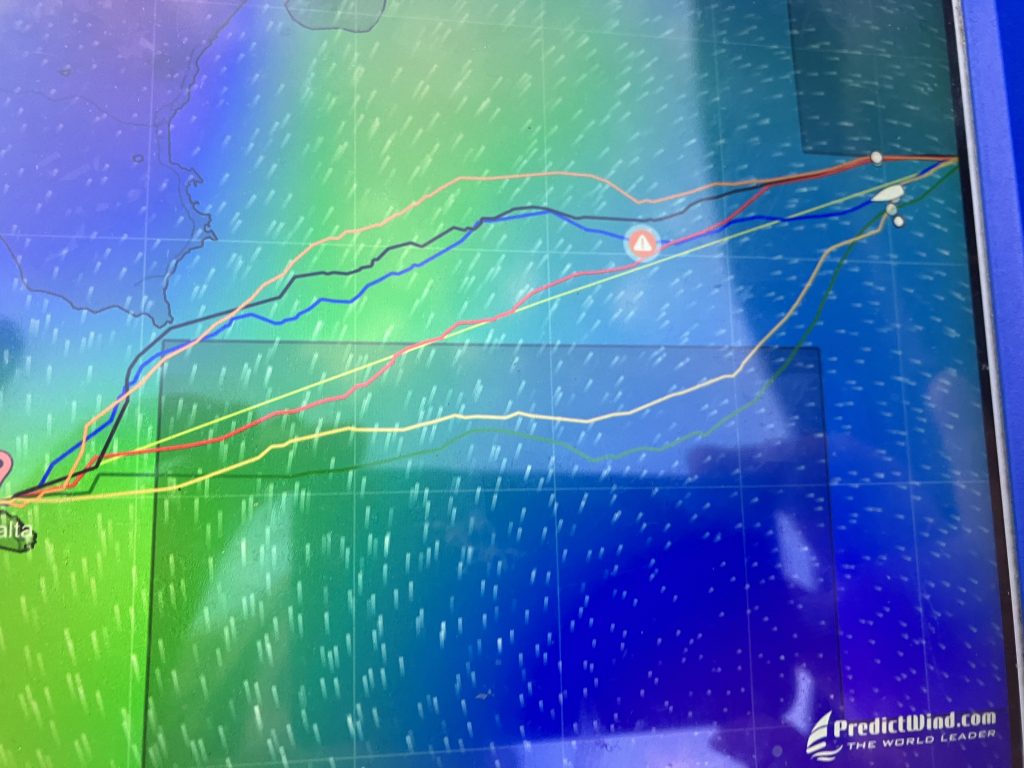
The forecast changed regularly and conditions we saw weren’t always following the predictions. At one point we were pretty discouraged, as the boat would regularly drop to 2 knots when we were motoring in messy seas with little wind. Would we have enough fuel to make it? This seemed like a no-brainer when we left. Suddenly we were caught between two approaching fronts with no time to put a reef in the main, much less put on our foul weather gear. Luckily, there was no rain, and instead the boat took off with the wind. Trip managed the helm while I played the main. Instead of petering out like most squalls do, this one dragged us along which we were happy to do. Eventually we managed to get the sail reefed (shortened), and I was happy to hand steer a well-balanced boat through the night doing well over 7 knots at times. There is nothing better than sailing by hand at night when things are comfortable. It’s magical to use the feel of the boat instead of your eyes).
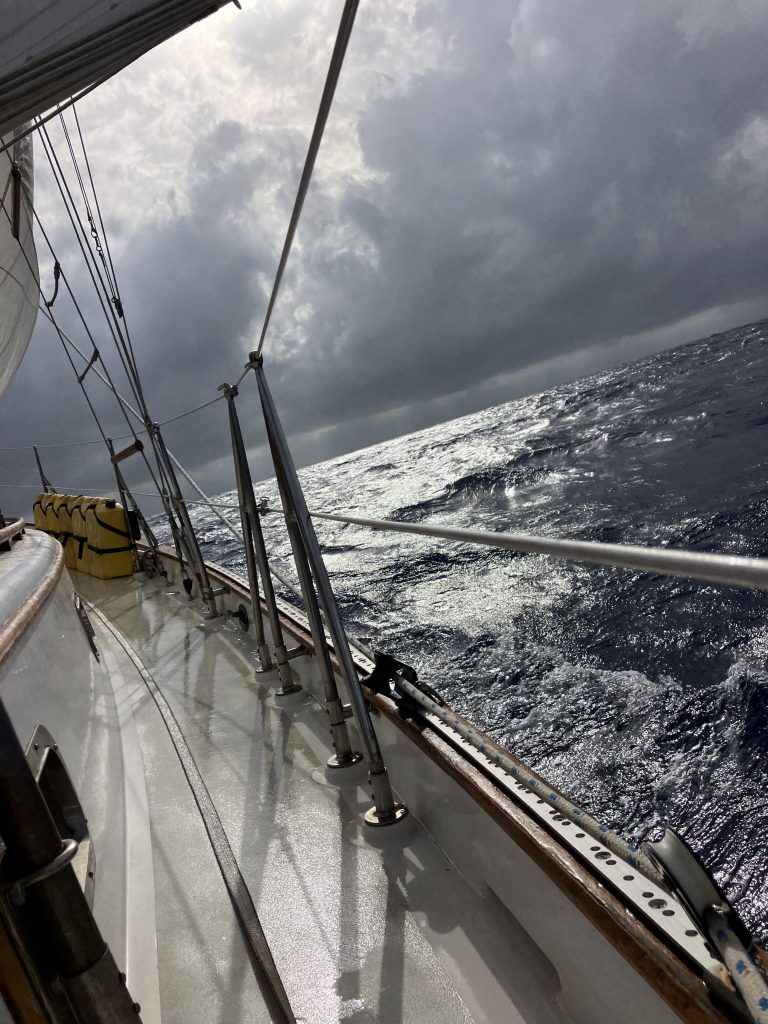
We actually had to slow ourselves down as we approached Malta, as we did not want to come into an unfamiliar anchorage at night.
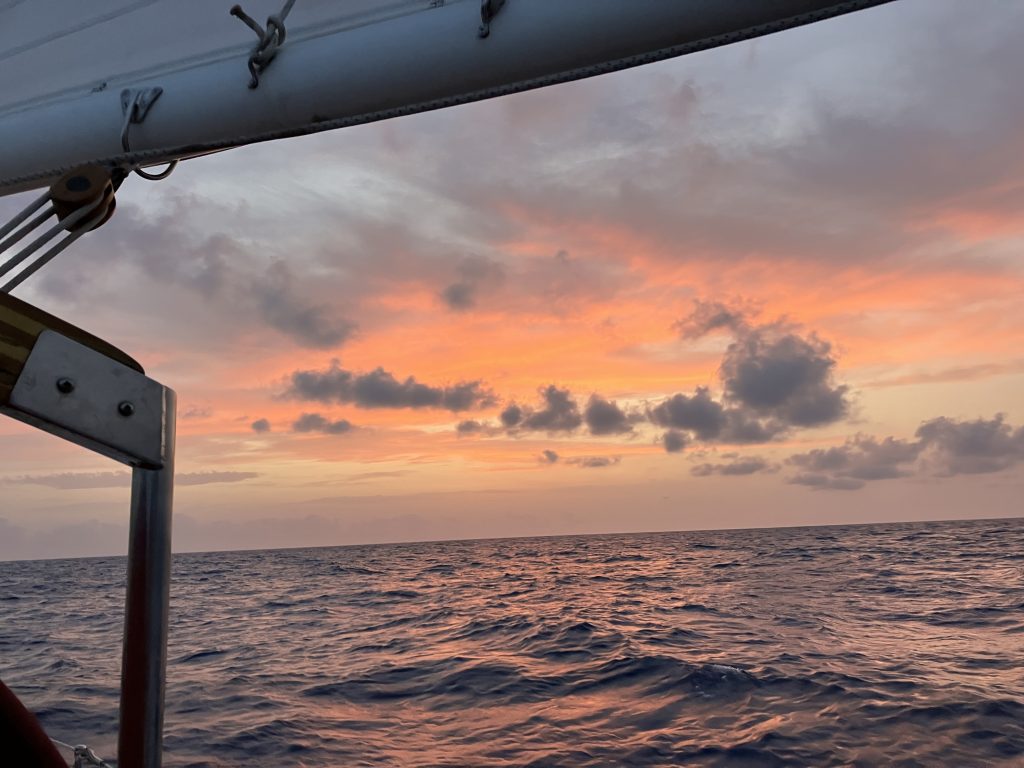
We dropped the anchor in St. Julians Bay at dawn, slept for a couple of hours, then went ashore to clear in and explore. Welcome to Malta!

Recent Comments